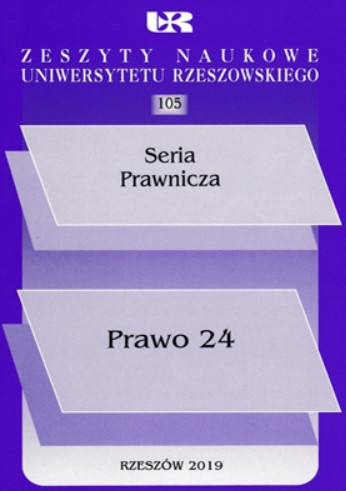W POSZUKIWANIU RZYMSKICH KORZENI DOWODU POSZLAKOWEGO. WSTĘPNE KWESTIE ŹRÓDŁOWE
IN SEARCH OF ORIGINS OF THE ROMAN CIRCUMSTANTIAL EVIDENCE. PRELIMINARY SOURCE QUESTIONS
Author(s): Krzysztof AmielańczykSubject(s): History of Law, Criminal Law, Criminology
Published by: Wydawnictwo Uniwersytetu Rzeszowskiego
Keywords: circumstantial evidence; Roman criminal law; probationes artificiales; signa;
Summary/Abstract: The most typical division of evidence in the Polish criminal procedure is the one into direct proof and indirect proof. Romans did not come up with scientific theory on the evidence and even with theory of the criminal proceedings as well. However, in spite of the absence of proper constructions of circumstantial evidence in Roman criminal law, this is out of question that Roman law allowed to present adminicles in both the quaestio perpetua trial and in the cognitio extra ordinem proceedings. The Roman accusators and advocates used with predilection the circumstantial evidence in the lawsuits to convince the judges. The examination of the most important legal sources: D. 48,19,5 pr. (constitutions of Emperor Trajan) and C. 9,47,16 (constitution of Emperor Constantine the Great) undoubtedly shows that circumstantial legal prosecution was in Roman world fully allowed. Quintilianus distinguished between direct proofs and indirect proofs. He called them probationes inartificiales and probationes artificiales (signa, argumenta, exempla). The most similar to present adminicles were signa.
Journal: Zeszyty Naukowe Uniwersytetu Rzeszowskiego - Seria Prawnicza
- Issue Year: 2019
- Issue No: 24
- Page Range: 11-25
- Page Count: 15
- Language: Polish

